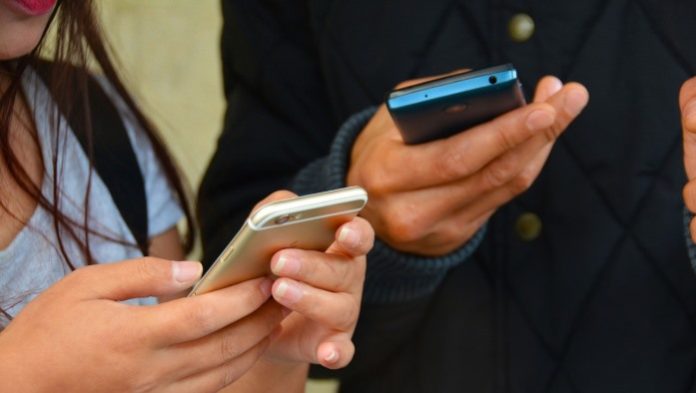Nowadays, it’s difficult to walk down the street without bumping into somebody who’s on their phone. In fact, we have such a hard time putting them down that we had to make it illegal to use hand-held devices while driving. You can even buy a timed lock-box to stow away your phone for a fixed period of time so you’re not tempted to look at it.
All signs point to a smartphone addiction, where we’d rather stare at a screen than talk to the person next to us.
But rather than complaining about how antisocial we’ve become, Samuel Veissière, Assistant Professor of Psychiatry at McGill University, has the opposite perspective: we’re not addicted to our smartphones because we’re antisocial, we’re addicted because we’re hypersocial.
“The human mind evolved to function in social environments in which it was a matter of survival to work together,” explains Veissière. The analysis was recently published in Frontiers in Psychology.
Being able to read others’ mental states, keep track of their reliability and status, or detect cheating and lying, were all necessary to survive in a group. And being part of a group afforded the perks of communal hunting, caregiving, and pooling of skills and resources.
Smartphones and social media are simply the new “water cooler” – an easier and faster way to get all the relevant gossip to survive in our society.
“The temptation of instant, large-scale, live-feed connection with so many people and so much information is very hard to resist,” says Veissière. He compares it to resisting sugary and fatty foods, which we also evolved to crave as rare and efficient sources of high energy.
And we’re generating lots of potentially useful data while glued to our screens. Researchers have been using data from search engines and social media to forecast near-future automobile sales, consumer trends, travel destination planning, and even seasonal microbiome changes.
Chris Bauch, Professor of Applied Mathematics at the University of Waterloo, recently used Google and Twitter data to predict disease outbreaks based on vaccination fears. In the study, published last December in the Proceedings of the National Academy of Sciences, Bauch’s team collected geocoded tweets about the measles–mumps–rubella (MMR) vaccine and classified them as pro- or anti-vaccine using machine-learning algorithms.
By applying a mathematical model to the data, Bauch’s team could predict the occurrence of the 2014–2015 Disneyland, California measles outbreak about two years before it happened. These types of analyses could pave the way for analytical tools that detect populations at heightened risk of disease with enough lead time to implement safety precautions.
“Before the internet and social media, it was more difficult to [make predictions] because the data were not as ‘dense,’” explains Bauch. “Typical data from surveys of vaccine coverage, or vaccine attitudes, only tell you how these variables change from one year to the next. Social media gives you more data, and faster.”
Veissière sees both the benefits and trade-offs of this deluge of social information.
“People have more opportunities to have a voice, and communities can form joint-goals and self-organize on an unprecedented scale,” he says. “But we also find a risk for mass-scale surveillance and social control. The internet also provides a platform for the potential spread of bad ideas, and the massive infection of vulnerable minds with stories that can lead them to flawed reasoning, bigotry and violence.”
Whether or not our social media addiction is good or bad, Veissière doesn’t think it can completely replace the benefits of in-person interaction.
“Just like hyper-accessible processed sugars make us fat without satiating us well, online social connection bloats and depletes us, but with an illusory sense of social fulfillment.”








































